The Venetians are not’ socialists, BORN’ liberals, and they certainly don't like anarchy.
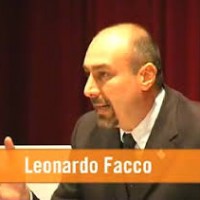 From the site the movement libertarian Leonardo Facco makes some considerations on independence, and as it has done he is angry with the League (moreover, in the past he demonstrated that the symbol of the League was the property of Silvio Berlusconi), but involuntarily highlights that libertarian thinking has nothing to do with Venetian independence. What it gives me the opportunity for a cultural analysis of the matter, hoping that do not pass from the cultural discussion to the insult of some of his followers.
From the site the movement libertarian Leonardo Facco makes some considerations on independence, and as it has done he is angry with the League (moreover, in the past he demonstrated that the symbol of the League was the property of Silvio Berlusconi), but involuntarily highlights that libertarian thinking has nothing to do with Venetian independence. What it gives me the opportunity for a cultural analysis of the matter, hoping that do not pass from the cultural discussion to the insult of some of his followers.
Facco writes “An independence activist is aware that “the government is not the solution, is the problem” and that – as Sheldon Richman argued – “the entrepreneur cannot buy favors from a bureaucrat who has no favors to sell”. An independence activist - in short - is useless (in fact it will end up causing damage, as the latest show 4 luster of leagues) if your concern is to participate in elections to administer a Municipality or a Region to fix manholes or to give benefits arbitrarily. Also in view of the next 25 May, the other way around, we will see the usual promises, which I avoid listing because it would be too long." He further adds “An independence movement if it really aimed to be credible, would avoid inventing highly complex programs aimed at the elusive "common good" of his city or region. In his program he would have only one point: unilaterally declare the independence of the organization in which he is a candidate, with consequences (even not pleasant) attached and connected. Everything else is just Italian-style. The Free Municipalities of Italy are better.”
Now I don't want to discuss the specifics of the League, but on the foundations of libertarian thought so well represented by Facco. In fact, "libertarians" are a cultural movement , if you want a philosophy and a political ideology, which challenges the state, in general and a priori, with the idea that any government is harmful, Anyway. For the libertarian, the government must stay out of any private affair, from private life, it must not give rules, it does not have to “be” in general.
I've always wondered where a situation leads where no one has to rule.
However, "liberal" culture is similar to this libertarian thought , the one that says the state must stay out of any market regulation, it must not impose rules. Thought miserably failed in a demonstrated way precisely with this crisis of 2007-2009, where the lack of controls on banks by governments has shown that the end result is go-go scams and the need for the State (that is, the citizens) to pay huge sums to clear the bank hole to avoid market collapse. One could object that the government knew, and then it must be said that it was the "liberal" government that did not regulate as appropriate. In reality, there were laws, and maybe the government also knew, but we have to decide whether we discuss principles or practice. We therefore start from the assumption that the principle of "regulating" as necessary is a good one, the practice has not been and must be improved and integrated with some further laws to stamp out corruption. But not having “law” is instead “bad” for the final outcomes.
Anyway, by virtue of liberalism and the absence of libertarian controls, we found ourselves in the collapse of the banks, and to avoid the "market collapse" the companies were closed down, bankrupt industries, laid off employees, causing and spreading misery, despair, disease and suicide. in conclusion, to save the banks in order to avoid damage to the "market" the market itself and also the entire society were destroyed. I say it certainly cost me to nationalize failed banks, and we would probably still have an intact market. Liberal theory does not work. Closed.
Said this, going back to libertarians, basic thinking tends to lack of government, but in practice it tends towards anarchy, the challenge of any form of organized structure that declares itself government. And in this sense I never understood what the libertarians among the Venetian independence activists were doing and what they are doing.
The Venetians who, more or less decisively, call for a return to the Venetian Republic, unlike libertarians, they invoke a republic that was anything but libertarian. It can even be said that in the eyes of a Venetian who knows his history, dualisms such as liberalism-socialism, freedom-state, individual-social status, they just don't make sense to look at the Venetian republic. Having said that, it must be said that many of the Venetian independence activists do not even know what they are talking about.
Speaking seriously documented of the Venetian Republic, it was certainly the first to nationalize trade using Galleys (warships of the state also used for merchant trade), which organized expeditions of many escorted ships called "muda", but it was not a "state" issue because anyone could participate in person with their own goods or through a shipowner in a "condominium" , but it wasn't even a postal service, because whoever shipped took on proportionate risks and costs, it was rather an investment in funds. The Republic later guaranteed these expeditions also against accidental risks such as shipwrecks and piracy, inventing after the service of muda and that of condominium, also the insurance service. Rather, regulated the entire supply chain behind the naval trading activity, from wood production (with the forestry of Cansiglio and Asiago), to the shipwrights with the “Scole” (which were not just training institutions, but real unions with mutual and pension, supervised by magistrates), to the industrial production of ships in the State Arsenal, pensions for the disabled and shipwrecked, the management of the port with career officers and / or noblemen commanded for short periods of surveillance, to market information service, to the creation of commercial colonies….. All of this on one hand worked perfectly in all aspects of administration, on the other hand it left individuals as much freedom as possible, and it gave him a sense of belonging according to the job, but it required strict controls. Furthermore, Venice was among the most interventionist states to defend all this, but for the purpose not to enrich this or that multinational that also existed in law, but to pour the benefits of the whole apparatus onto the republic and citizens. So on the one hand he first imposed a monopoly on trade, salt species, but then it was the first to destroy it with the invention of the Antitrust Authority in 1300 because new levels of well-being could come from breaking a trade that had become too consolidated. In short, everything converged towards the fight against parasitism, monopolies, to the gangs, and the conflict of interest, and the result was not only the Venetian Renaissance, but the flowering of the arts, of culture and modernity throughout Europe.
These values ​​are still very strong among today's Venetians. Venetians don't like disorder, I am ready to bet that rather than anarchy they prefer Fascism or Communism or FascioComunismo, but in reality they hate all these forms and would like individual freedom but also sociality for the needy (not for pests) well married as did the republic. It is no coincidence that the Venetians are still today great workers and producers, but also great volunteer activists, as well as great inventors. But they don't like waste and cliques, so much so that the mafia attacks only because the Italian state is there, not because the Veneto has a mafia culture. Then there is always the bad apple in everything, these are percentage differences between people and people. We can safely see that in today's Venetian people, even though it has become Italianized and is now reduced to a minority of the population residing in Venice, the values ​​of the Venetian Republic are still strong. E’ the Republic is dead, not the values ​​he had. Having said this we can safely say that almost all those who today declare themselves representatives of the "Venetian Republic" in many cases have neither the knowledge nor the minimum credibility requirements to be able to be representatives of the Venetian people, that, I repeat, he does not like the gangs and the cliques the shrewd, but neither do they vote for these senseless arrivals.
What does all this have to do with the libertarian idea ? I would say nothing.
In the libertarian phrase repeated by Leonardo Facco “the government is not the solution, is the problem” we find these Venetian values violated , the Venetians don't think that the problem is the "government" , but this form of government, the Italian one, that of the mafias, of corruption, of parties (the Venetian republic did not have parties).
In most Venetians do not feel like this system, and they started to realize recently that this system, the Italian “democratic” system, it will never be good for them, because they don't know how and don't want to play in this system of corruption and falsehood.
In short, I fear that Facco uses the word "independence" in the libertarian sense of the word, while the Venetians are independentists in the national sense of the term, they want a different government than they have today, they want a government much more similar to that of the Venetian Republic. Incidentally, the Venetian Republic was very careful to give space to the talents coming from the people, they also reached the highest levels of administrative power, the talents were not wasted, but at the same time the Republic helped those who could not do it, including the poor and among them, the poor nobles.
Theme, I am convinced, that libertarians have a concept of “independence” which is an individualist concept, not ordered in a system, while the Venetians think of a principle of order of reality, and they certainly don't like the anarchy in which they already find themselves living.
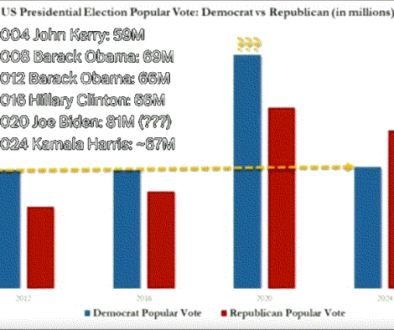
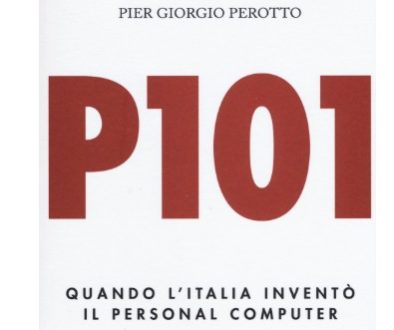

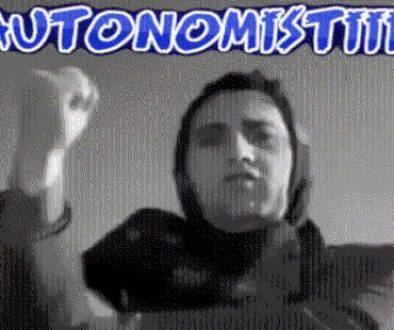
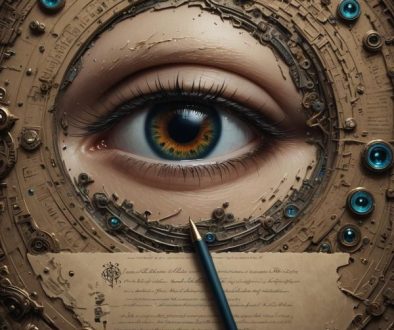
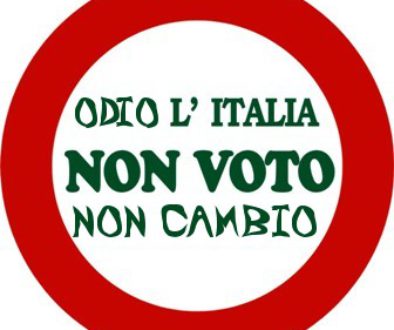
spago
13 May 2014 @ 08:51
I still don't understand how to write in good faith that the current crisis proves the failure of liberalism.. sorry eh.. maybe liberalism will suck, but to prove it, we need coherent examples.. he is sure he knows what it is first? we have not lived in a liberal period, there is no liberalism, indeed there is its opposite: there are central banks, the manipulation of money, the states, bureaucracies, the cup, regulations at every level, the state that intervenes in the economy, i salvatggi, subsidies, etc.. and this also applies to America, the country from which the crisis started.. and if you read the serious reconstructions of this crisis, also made by those who have nothing to do with libertarian thought, from Zingales to Seminerio e.g.. it will find the role of the American state and politics. So how can we say that the statism we live in proves that the absence of a state is harmful? how can you take the “market” current – especially the banking sector where central banks exist, control of money, fractional reserve, one thousand thousand regulations, political pressure to do this or that, from lending to buying public debt – as an example of a free market in a libertarian sense? it is a market as it were, it is an apparent market, since it lives in the residual space left to it and is deformed in every way by public intervention. Left to itself in a libertarian sense, maybe it would break down for charity , but surely it would completely change shape. How many large companies live on political favors, of monopolies guaranteed by politics, of subsidies or incentives, of ad hoc measures and how many are killed by excess taxation? among them there are all those cases where the government takes over and clears the debts or where it is in charge of putting together consortiums of entrepreneurs-healers guaranteeing them special conditions.. in short, there are precisely those bailouts of banks and financial companies that have made people indignant during this crisis. Libertarians are even against any form of taxation.. so how do you bring in good faith the example of citizens forced to pay huge sums to fill holes? or she did not understand or seems to me in bad faith. How can liberal government speak of these things which are the opposite of liberalism? God.